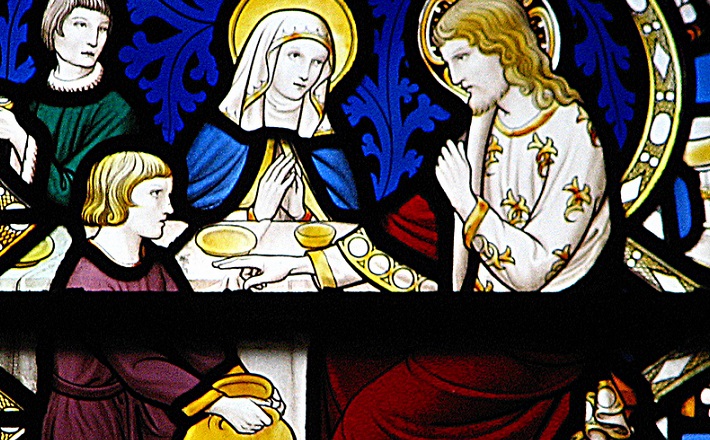Commentary on Psalm 36:5-10
The God of justice cares for refugees.
This essential affirmation about God’s character emerges over the course of the entire psalm, only portions of which (vv. 5-10) appear in the lection for this Sunday. Since the context is critical, the comments here will include vv. 1-4 and 11-12.1
The structure of Psalm 36
The psalm begins with one of the longest meditations on the nature of wickedness in the entire Psalter. In the first four verses, the psalmist takes us on a tour through the thoughts (vv. 1, 4), words (v. 2-3), and actions (v. 4) of the paradigmatic wicked person.2
The text then moves abruptly to a hymn of praise (vv. 5-9) that describes Yahweh as the perfect foil for the wicked. The hymn explores God’s just character (vv. 5-6a) along with God’s saving and protecting acts (vv. 6b-9) on behalf of those who seek refuge.
With Yahweh’s power clearly in view, the psalmist then utters a petition for protection against the wicked (vv. 10–11) and concludes with a statement of trust (v. 13) in this supreme God of justice. In doing so, the psalmist associates herself with the refugees under Yahweh’s wings (v. 7).
The nature of the wicked
The psalm presents the wicked one as, ironically, both foolish and cunning. The wicked one is constantly hatching plots (v. 4) even though he completely lacks wisdom (v. 3). He is either unwilling or unable — the text isn’t clear on this point — to acknowledge God and thus, to fear God.
“Transgression,” (Hebrew: pasha‘) which could also translated “rebelliousness” (v. 1), is a force deep within the personality of the wicked person. Transgression is the constant urge to break down relationships by setting one’s own desires as more important than everything and everyone else.
This deep-seated selfishness governs every action and sensibility. In fact, the psalmist highlights the wicked person’s skewed sense of perception by focusing on his “eyes,” which cannot discern God’s power and might (vv. 1-2). These eyes are so blinded by pride and self-absorption (v. 2) that he cannot recognize his own depravity and all its manifestations in his mouth, hands, and feet.
The nature of God
While the wicked are set on destroying relationships through lies, flattery, and mischief, God is committed to preserving and maintaining right relationships. God’s love (vv. 5, 7) manifests an unswerving loyalty. Indeed, God epitomizes righteousness (v. 6), while the wicked are unrighteous in every respect, actively persecuting the righteous (v. 4).
The detailed presentation of the wicked at the outset of the psalm is mirrored by an equally expansive description of Yahweh’s character and actions (vv. 5-9). Each aspect of Yahweh’s character in vv. 5-6 is coupled with a powerful force of nature: steadfast love — heavens; faithfulness — clouds; righteousness — mighty mountains; judgments — great deep.
Here the psalmist provides concrete examples of otherwise intangible aspects of the divine personality by binding them to readily observable elements of the universe. These forces of nature bear witness to the very nature of Yahweh. Indeed, the psalmist suggests that the structures of the world attest Yahweh’s righteousness and justice.
In addition to extolling Yahweh’s characteristics, the psalmist depicts Yahweh in acts of salvation and protection (vv. 6b-7). Through the image of divine “wings,” this incredibly powerful deity creates a vast protective sphere that includes both humans and animals. Yahweh, in a sense, has a giant wingspan.
Everyone and everything under Yahweh’s wings receive illumination and sustenance (vv. 8-9). The psalmist imagines a God who faithfully preserves a well-ordered universe in which wickedness is punished (vv. 12) and the righteous find protection and prosperity (vv. 7-11).
God’s refugees
Two communities appear in this psalm, the righteous who seek refuge in God and the wicked who persecute the righteous. The psalmist counts herself clearly in the first group, a community of faithful that includes both humans and animals (v. 6). This community relies on Yahweh for everything.
Despite the machinations of the self-obsessed wicked, the psalm describes a protective realm in which the whole earth is infused with the saving presence of the deity. God’s care for the refugee will ultimately lead to the end of persecution (v. 12), an end to self-reliance, opportunism, and delusion (vv. 1-4).
This psalm is good news for refugees: “all people may take refuge in the shadow of your wings” (v. 7). The God of justice is at work in the world bringing about salvation.
To be sure, with its long meditation on wickedness at the outset (vv. 1-4), the psalm acknowledges that evil is running rampant in the world and that refugees are begging for help (vv. 10-11). So the psalm presents a clear challenge to all its readers: when we acknowledge God’s just character and actions on behalf of refugees, we oppose wickedness.
As Christians pray this psalm today, they stand in solidarity with all those seeking refuge. Praying this way also compels us to participate in God’s works of justice and righteousness throughout the world.
Notes:
1 The following essay draws in part on a more technical discussion of this psalm that I published in chapter 4 of Yahweh’s Winged Form in the Psalms: Exploring Congruent Iconography and Texts (Orbis biblicus et orientalis 242; Fribourg, Switz.: Academic Press; Göttingen: Vandenhoeck & Ruprecht, 2010).
2 In Hebrew, “the wicked one” (rasha‘) at the beginning of the psalm is an unnamed male person. Note, however, that the NRSV renders the first four verses with gender-neutral plural pronouns, making “the wicked one” (him) into “the wicked” (them).


January 17, 2016